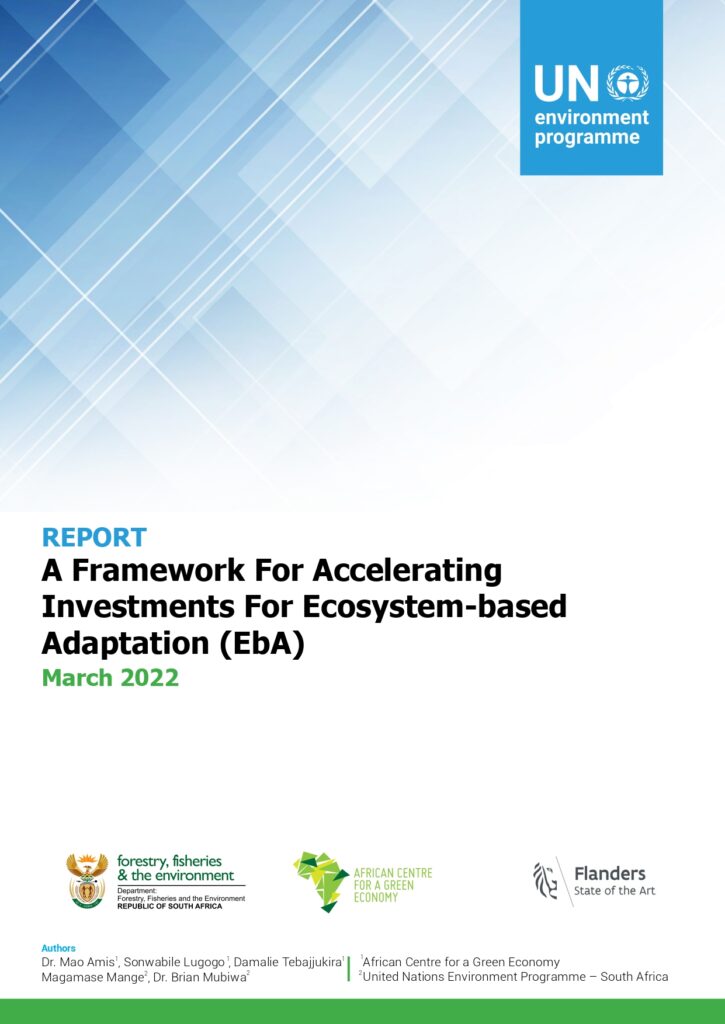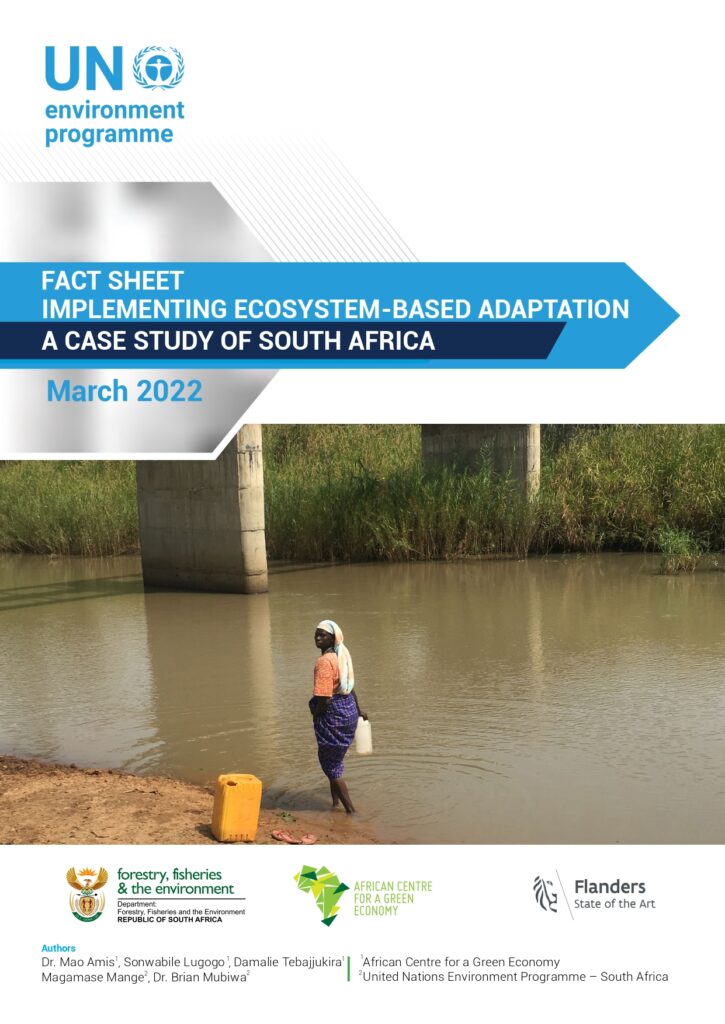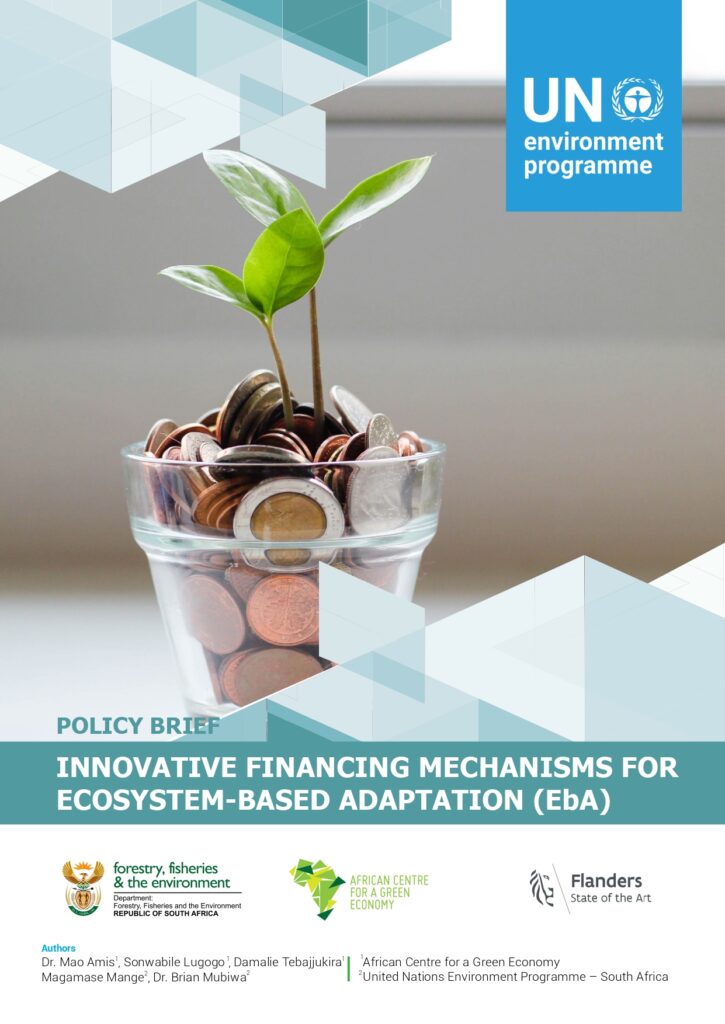Publications
Rigorous reports, brilliant briefs, clever case studies, daring discussion papers, functional fact sheets
Search
- Reports
- Case Studies
- Policy Briefs
- Books, Articles and Chapters
- Discussion Papers
AfricentreCGE is committed to publishing only high quality research. We adhere to academic standards of excellence for all our publications. We also strive to make our publications freely and widely available. For more about our publication standards and copyright information, click here.
Browse Publications

There is an urgent need for new and sustainable sources of revenue to fill the financing gap to undertake
climate action (ICAD, 2007). Climate change adaptation is extremely costly, requiring significant investments
to build resilience, including biodiversity conservation, habitat restoration and promoting business models that
minimise environmental impact.

Climate change is posing a global threat to ecosystems, people and the economy, hence the need for urgent
climate action. Sub-Saharan Africa continues to record extreme events such as droughts and floods, food and
water insecurity, worsening its vulnerability.

Climate change poses a significant challenge to South Africa’s development, impacting critical ecosystems and
vulnerable communities. Biomes such as grasslands, Nama Karoo biome, Indian Ocean coastal belt, Fynbos
biome and the Forest biome are under threat to increasing temperatures and rising carbon dioxide levels (Ziervogel et al., 2014).

Climate change poses significant threat to South Africa’s natural resources, impacting its water resources,
food security, health, infrastructure as well as key ecosystems and biodiversity. Building resilience of vulnerable
communities, especially those in rural areas is critical as they are most impacted by climate change. Despite
the challenges of climate change and its impact on rural communities, there are opportunities for building
resilient and prosperous rural communities in some of the most vulnerable regions in South Africa.

This report unpacks the impact of the
transition to a low carbon economy, on the extractives
sector in Africa, bearing in mind it’s significance to
the continent’s development agenda. The report
highlights key trends in the extractive sector at the
continental level, with specific case studies from five
Southern Africa countries, namely the Democratic
Republic of Congo (DRC), Mozambique, South
Africa, Zambia and Zimbabwe.

Africa’s transition to clean energy is prone to global
geopolitics. The current global energy crisis as a
result of the invasion of Ukraine by Russia has led to
a general increase in prices of food and other related
commodities around the world.

